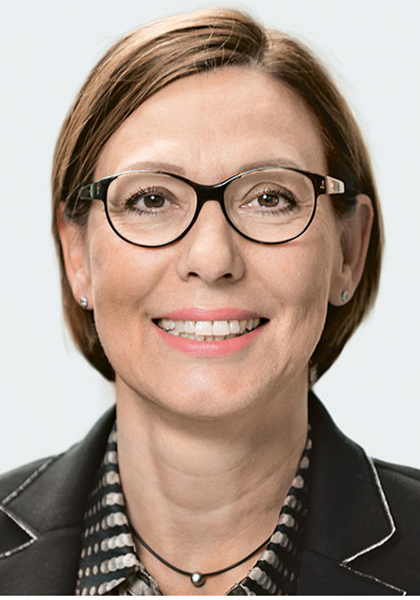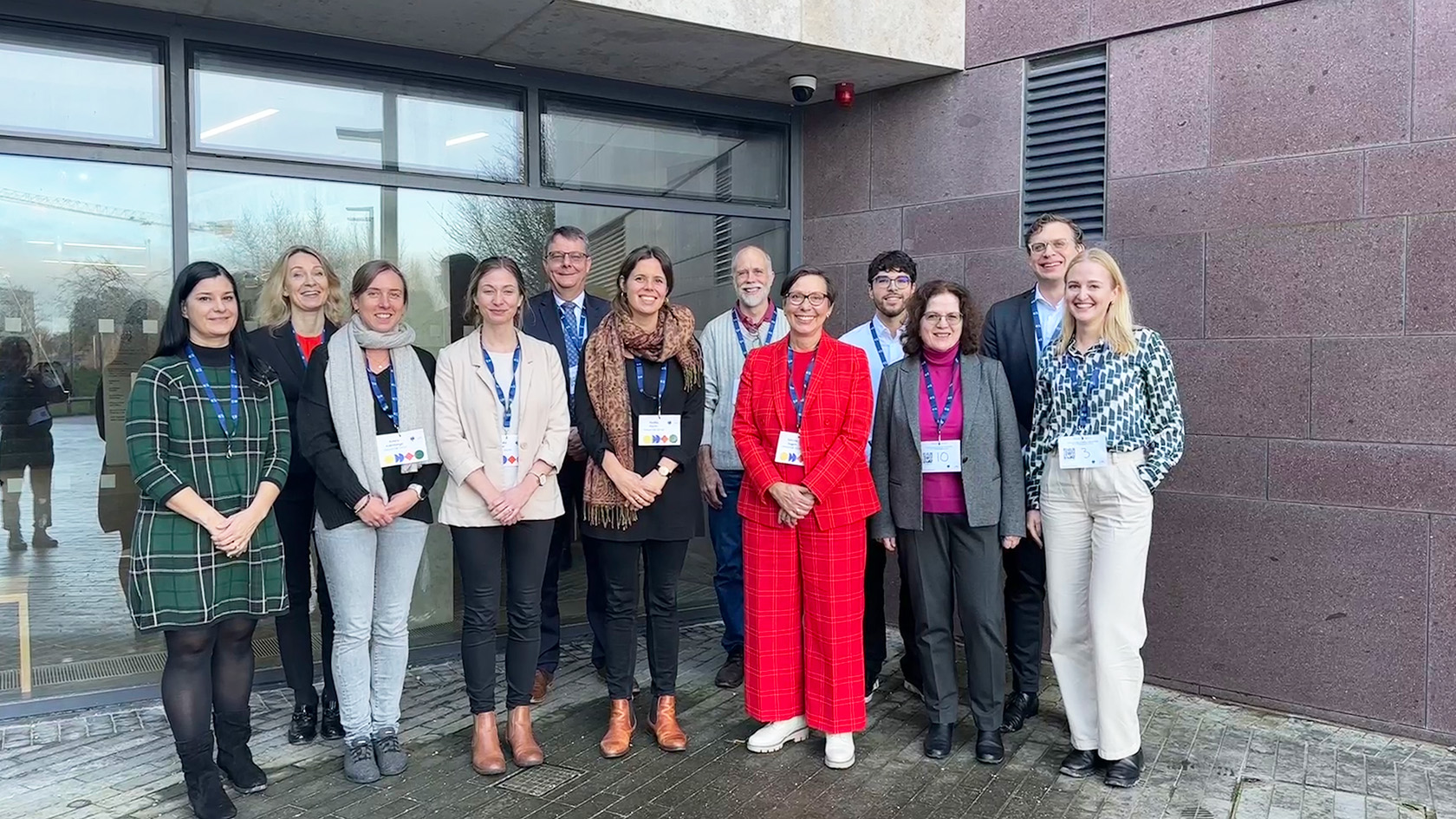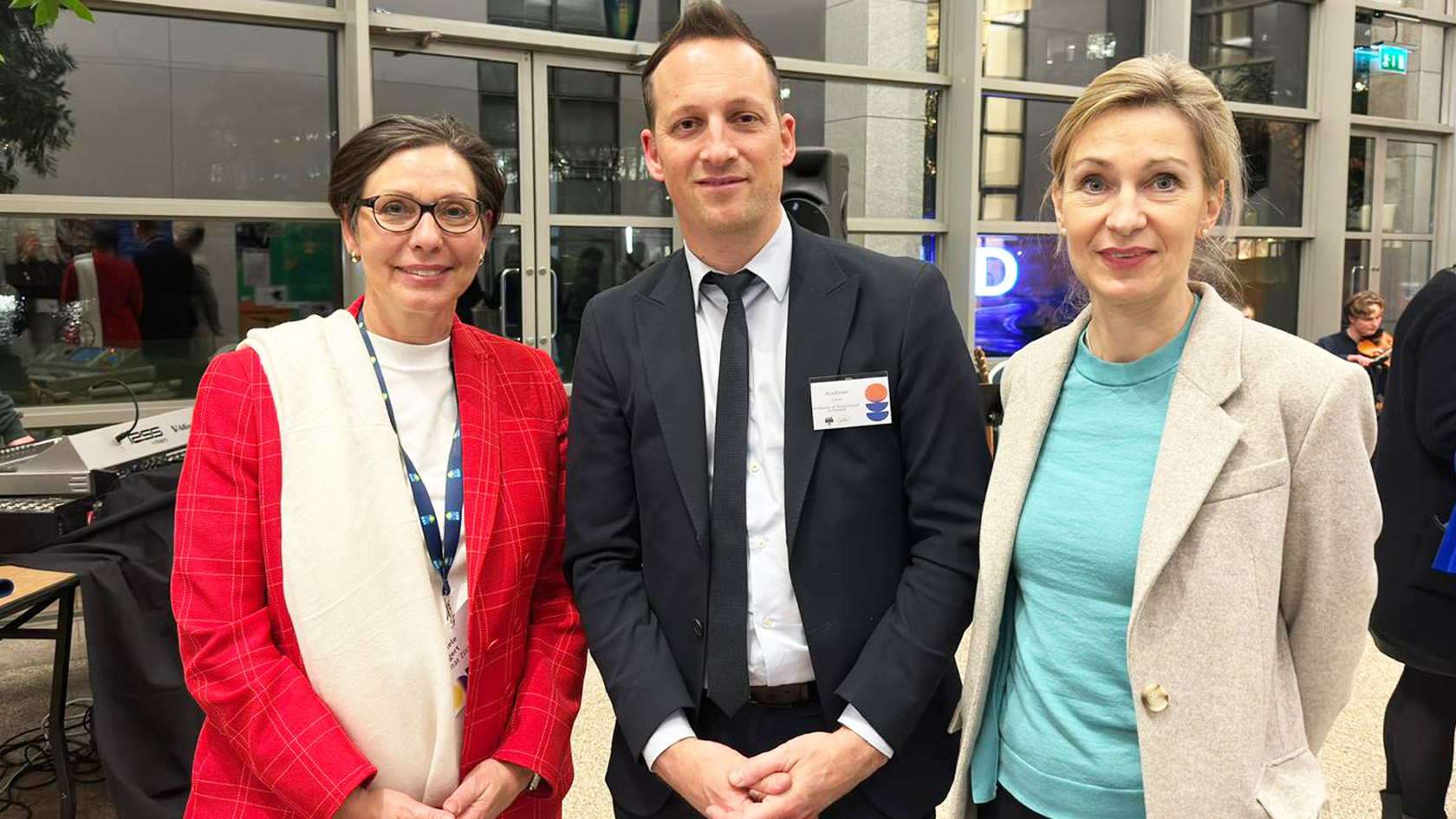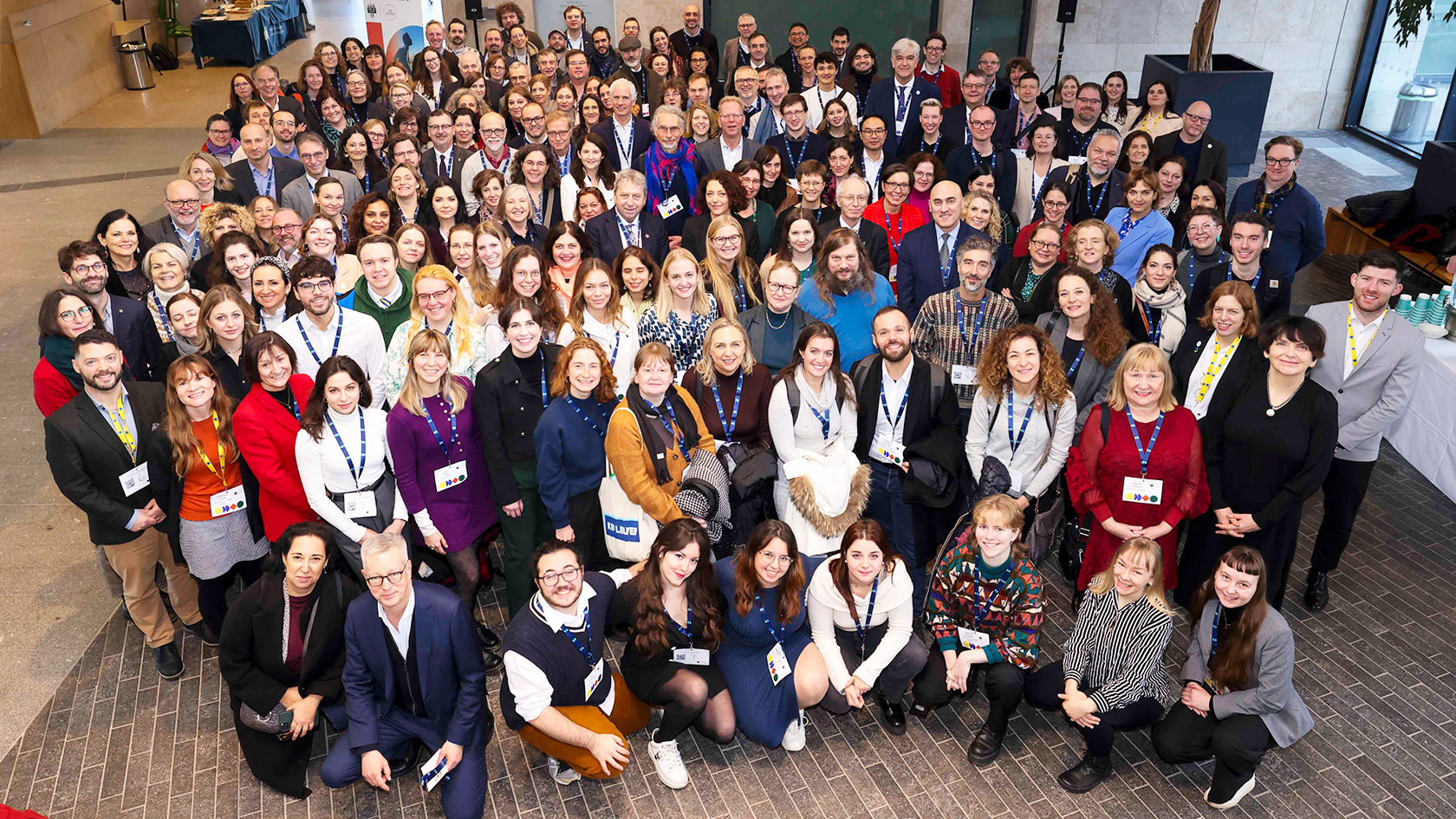Una Europa Boosts European Cooperation
Gabriele Siegert, UZH has been a member of Una Europa since May 2022. You represented the University of Zurich on the alliance’s Board of Directors until the end of last year. How important is the alliance for UZH?
Gabriele Siegert: Una Europa is very important for us, because we’re currently not politically connected to Europe and can’t fully be a part of EU programs such as Horizon Europe or Erasmus. The alliance allows us to establish and deepen close partnerships with like-minded universities across Europe. The 11 universities that make up Una Europa share similar strategic goals for education, teaching, research and innovation. Our comprehensive university fits in well with the alliance’s focus areas. Being a part of Una Europa enables us to also innovate in teaching, which, as Vice President Education and Student Affairs, is particularly important to me.
Can you draw an initial conclusion about what being a member of Una Europa means for the UZH community?
Siegert: I could mention that one of the first things we’ve learned is that other universities are just as bureaucratic as we are ...(laughs). Seriously though, our Una partner universities have enabled us to be more dynamic in driving innovation in teaching and making our degree programs even more international, for example thanks to the Una Europa One Health Summer School for PhD students, to which we have already contributed modules, or through staff weeks aimed at university administrators working in the same areas.
Our membership in Una Europa provides our researchers with access to seed funding that makes it possible to establish long-term cooperation activities between partner universities, for example through university research funding. Two joint study programs at the Bachelor’s level, the Joint Bachelor of Arts in European Studies (BAES) and the Joint Bachelor in Sustainability (BASUS), are being developed and are well underway.
Can you tell us a little more about the study programs? When will they be available to students?
Siegert: The Joint Bachelor of Arts in European Studies (BAES) is a comprehensive study program that examines the history, politics and legal framework of Europe, among other things. Thanks to our membership in Una Europa, the program will be available to UZH students through our Faculty of Arts and Social Sciences from the 2025 Spring Semester onward. Students can look forward to a wide-ranging and multidisciplinary program and get an opportunity to study at different leading European universities in the course of a single Bachelor’s degree.
As for the Joint Bachelor in Sustainability, UZH students will be able to participate through the Faculty of Theology and the Study of Religion as degree-awarding partner, likely from the Fall Semester in 2025. As with the BAES, each partner university will add their specific expertise to the degree programs.

The shared goal of Una Europa is to create a University of the Future that jointly conducts research and teaching, with in-depth cooperation on all levels, including in administrative tasks.
Appealing cross-border degree programs will likely increase student mobility. How important is this aspect?
Siegert: It is very important, as experience tells us that our students aren’t as internationally mobile as we would like them to be. Una Europa aims to have half of all students gain international experience during their studies. This doesn’t necessarily have to be a whole semester. It could also mean that students take part in a winter or summer school, or that they complete an international online module where they share ideas with other students. I think Una Europa will help us to increase student mobility at UZH.
Una Europa is an alliance of European universities. Does this focus on Europe make sense? After all, Switzerland could strengthen its ties with leading universities in the US or Asia?
Siegert: We also work with universities from all over the world, be it in research or, less often, in teaching. But our values align particularly well with those in other European countries. A culture of freedom of expression and an open exchange of ideas is easiest and best achieved with European partners. In this context, joint degree programs, which we have now started building up, are a logical next step. This form of cooperation is almost impossible to implement with universities that are further away.
As the largest university in Switzerland, UZH is probably an attractive partner for European universities. What is UZH contributing to the alliance?
Siegert: As a research-intensive and prestigious university, we were welcomed with open arms. Some Una Europa members were already familiar with us from our involvement in LERU (League of European Research Universities), which we joined in 2006. We also have a close strategic partnership with Freie Universität Berlin, which is a founding member of Una Europa. As a comprehensive university, we can make valuable contributions to all six of Una Europa’s focus areas – Cultural Heritage, Data Science and Artificial Intelligence, Europe and the World, Future Materials, One Health, and Sustainability. We quickly appointed the relevant people from UZH to the respective steering committees so that they can add their expertise. We’re also active in the alliance’s so-called clusters, which focus on mobility and teaching, among other things.
UZH is involved in several other European networks, including LERU, U21 and the European University Foundation (EUF). How are these networks different to Una Europa?
Siegert: The networks you mentioned focus on different aspects and carry out tasks that complement each other. The League of European Research Universities (LERU) focuses on promoting research and engaging with EU policies that affect research-intensive universities. As a network of leading European research universities, LERU is also an important benchmark for us.
Universitas 21, which we joined in 2017, focuses on bilateral arrangements and student mobility. It adds a global dimension to student mobility at UZH and connects us with universities in Asia and Australia, in particular. The focus of the EUF is also on student mobility, but with an emphasis on Europe. Since we’re currently not a part of the Erasmus program, this cooperation is important for us so that we don’t fall behind.
What role does Una Europa play within these university networks?
Siegert: Una Europa actually isn’t a network, but an alliance of universities, with no more than one university from each European country. The shared goal is to create a University of the Future that jointly conducts research and teaching, with in-depth cooperation on all levels, including in administrative tasks. In this sense, the Una Europa alliance is more binding than the networks mentioned earlier, and the joint programs that culminate in recognized degrees are evidence of this.

An involvement in Una Europa comes with funding requirements. What is the situation here?
Siegert: The EU provides European partner universities with substantial financial resources for Una Europa. Switzerland also provides some co-funding which allows UZH to contribute financially and shape things. Part of the funding comes from Movetia, the Swiss national agency for the promotion of exchanges and mobility in the education system. But we’re also investing from our other funding.
UZH will host the General Assembly in June 2024. Do you already know what the focus will be?
Siegert: We’re still putting the agenda together, but I can already say that One Health will be a big topic. One Health allows us to have in-depth discussions about the sometimes overlapping approaches to health in the areas of human and animal health as well as in the environment, and how to develop them in a healthy and sustainable way. Our goal is to foreground UZH’s One Health Institute within this focus area, and in the long run, we want to take on a leading role in the alliance with this topic.
At the end of last year, you handed over your position on the Board of Directors to Vice President Elisabeth Stark. What advice did you give her?
Siegert: Elisabeth Stark knows the alliance and the other members of the Board of Directors very well and doesn’t need any advice. On the contrary, thanks to her language skills, she can speak to many of them in their native language, which definitely doesn’t hurt. I assume she’ll have a similar approach to mine and focus on a few key areas that she will pursue with great enthusiasm.

